Homo Superior – Flipbook
Unearth the Astonishing Secrets of Cro-Magnon
The Mind of Homo Superior – Chapter 9
The final chapter delves into the cultural and intellectual contributions of the ancient civilisation, exploring how their unique characteristics and mental attributes shaped the world of art, music, and language. The discussion highlights the construction of the first underground “cathedral” some fifteen thousand years ago and emphasizes the advanced artistic skills of ancient humans. The chapter draws attention to Pablo Picasso’s recognition of the sophistication of ancient art, challenging the notion that progress in artistic expression occurred only in more recent times.
The narrative traces the origins of modern Indo-European languages to the Caspian Sea, coinciding with the time when the Cro-Magnons left to explore new territories in the West. Society’s preference for verbal communication over writing is explored, challenging conventional views on the significance of writing as a sign of sophistication.
Innovation emerges as a central theme, with the echoes of this ancient civilisation reverberating throughout history, influencing remarkable discoveries and technological evolution. The chapter identifies historical figures who owe their contributions to the biological tendencies inherited from the Cro-Magnon ancestors, demonstrating the lasting impact of this advanced society on human development.
The discussion critically examines the so-called “mental flaws” of Cro-Magnons, offering a perspective on how modern society, through its approach to mental health and longevity, may be inadvertently impeding human evolution by not fully understanding the ultimate purpose of existence.
The narrative concludes by revisiting Stonehenge, the civilisation’s greatest monument, and uncovering hidden messages within its construction. It suggests that the advanced mathematical knowledge and use of imperial measurements incorporated into Stonehenge challenge traditional attributions to later civilizations, such as the ancient Greeks, reshaping our understanding of the intellectual achievements of this lost civilisation. (Homo Superior)
Langdon’s journey was marked by meticulous mapping and years of research, culminating in a hypothesis that would reshape our understanding of prehistoric Britain. He proposed that much of the British Isles had once been submerged in the aftermath of the last ice age, with these ancient sites strategically positioned along the ancient shorelines. His groundbreaking maps offered a fresh perspective, suggesting that Avebury had functioned as a bustling trading hub for our ancient ancestors. This audacious theory challenged the prevailing notion that prehistoric societies were isolated and disconnected, instead highlighting their sophistication in trade and commerce. (Homo Superior)
In the realm of historical discovery, it is often the audacious thinkers, the mavericks who dare to question established narratives, who propel our understanding forward. Robert John Langdon is undeniably one of these thinkers. With a deep passion for history and an unyielding commitment to his research, he has unearthed a hidden chapter in the story of Avebury—one that transcends the boundaries of time and offers fresh insights into our shared human history.
As Langdon’s trilogy, ‘The Stonehenge Enigma,’ continues to explore these groundbreaking theories, it beckons us to embark on a journey of discovery, to challenge our assumptions, and to embrace the possibility that the past is far more complex and interconnected than we ever imagined. Avebury, with its ancient stones and enigmatic avenues, continues to whisper its secrets to those who dare to listen, inviting us to see history through a new lens—one illuminated by the audacious vision of Robert John Langdon. (Homo Superior)
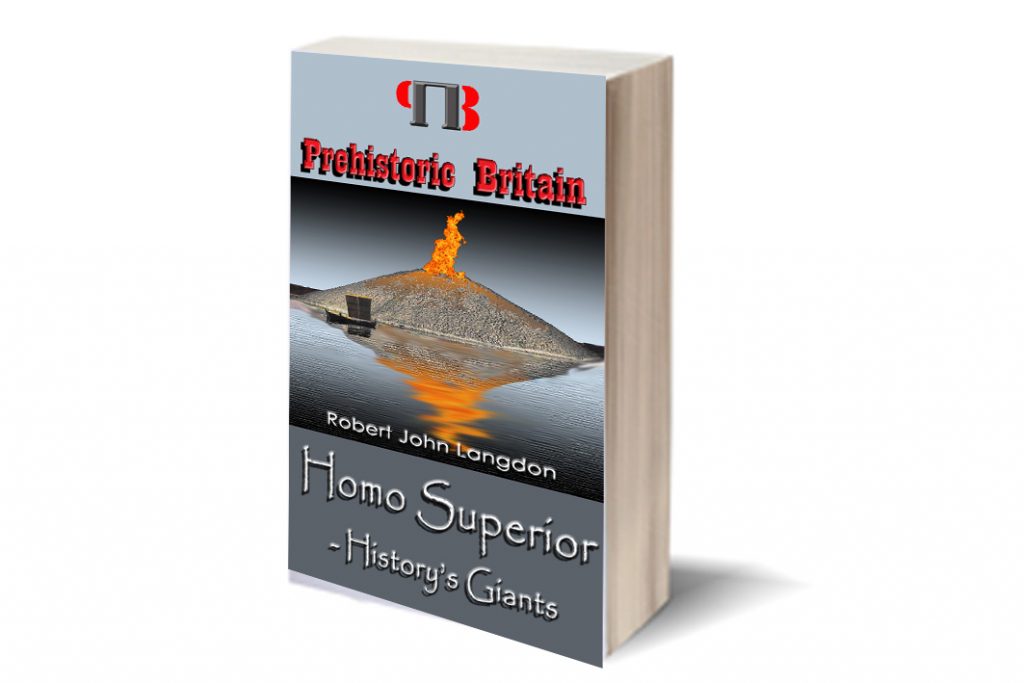
In the annals of History, a remarkable tale unfolds, not in science fiction but on the shores of the Caspian Sea, some thirty thousand years past. Here, a pivotal event unfolded, altering humanity’s trajectory and bestowing us its enduring legacy. The protagonists of this saga were extraordinary beings, the blue-eyed, blonde ‘Gods,’ architects of a society markedly distinct from our own. (Homo Superior)
Picture an idyllic existence, where self-sufficiency reigned and houseboats sailed serene waters that once submerged our landscapes. Plato’s narrative charts their course from utopian tranquillity to an era of conflict and servitude. This civilisation, spanning twice the duration it took our present society to cultivate fields and rear livestock, traversed through epochs of peace and strife reminiscent of our temporal vicissitudes.
Envision the pleasures of gliding on tranquil seas daily, anchoring at twilight to revel in camaraderie, feasting on barbecued fare shared among kindred boat folk. Archaeological revelations at Durrington Walls, near Stonehenge, unveil a society not confined by regional boundaries, as evidenced by the distant origins of feasting provisions journeying from as far as Scotland. (Homo Superior)
These ancient hill sites were not mere trading hubs for jade, gold, salt, and amber; they were crucibles of oral traditions. Storytellers gathered around blazing bonfires, their tales weaving through the tapestry of History and mythology. In these gatherings, the anthropological integration of boat-dwelling communities took root. Bonds formed, relationships blossomed, and society emerged following Plato’s musings, eschewing material wealth and favouring the richer tapestry of human connection.
Intriguingly, traces of their egalitarian ethos echo through the corridors of History, imprinted on civilisations that later sprang from this ancestral font. Unlike Plato’s and even biblical narratives, Greek writings resonate with tales of utopias sullied by the spectre of human avarice.
The Homo Superior, masters of their time, faced a pivotal juncture— the submergence of their homeland, Atlantis, beneath the North Sea in 4200 BCE. Did this cataclysmic event spur a diaspora, propelling some to warmer Mediterranean climes, where dominion over less developed populations beckoned? The Egyptian Pharaohs, with their Celtic lineage, might hold a thread of connection to this epoch.
The influence of these Homo Superiors eludes precise calculation, but their indelible impact catapulted Stone Age man into realms of unparalleled progress. As their genetic legacy intermingles with diverse lineages, they continue to shape the narrative of our species. In unravelling their story, we embark on a quest to identify these ‘supermen’ across History, exploring the trajectory they charted for humanity and understanding why they chose to blend into the mosaic of the present, concealing their unique heritage within the vast tapestry of our shared existence.
(Homo Superior)
Further information
For more information about British Prehistory and other articles/books, go to our BLOG WEBSITE for daily updates or our VIDEO CHANNEL for interactive media and documentaries. The TRILOGY of books that ‘changed history’ can be found with chapter extracts at DAWN OF THE LOST CIVILISATION, THE STONEHENGE ENIGMA and THE POST-GLACIAL FLOODING HYPOTHESIS. Other associated books are also available such as 13 THINGS THAT DON’T MAKE SENSE IN HISTORY and other ‘short’ budget priced books can be found on our AUTHOR SITE. For active discussion on the findings of the TRILOGY and recent LiDAR investigations that is published on our WEBSITE you can join our FACEBOOK GROUP. (Homo Superior)
Other Blog Posts
1
a
- AI now Supports – Homo Superior
- AI now supports my Post-Glacial Flooding Hypothesis
- Alexander the Great sailed into India – where no rivers exist today
- Ancient Prehistoric Canals – The Vallum
- Ancient Secrets of Althorp – debunked
- Antler Picks built Ancient Monuments – yet there is no real evidence
- Antonine Wall – Prehistoric Canals (Dykes)
- Archaeological ‘pulp fiction’ – has archaeology turned from science?
- Archaeological Pseudoscience
- Archaeology in the Post-Truth Era
- Archaeology: A Bad Science?
- Archaeology: A Harbour for Fantasists?
- Archaeology: Fact or Fiction?
- Archaeology: The Flaws of Peer Review
- Archaeology’s Bayesian Mistake: Stop Averaging the Past
- Are Raised Beaches Archaeological Pseudoscience?
- Atlantis Found: The Mathematical Proof That Plato’s Lost City Was Doggerland
- ATLANTIS: Discovery with Dan Snow Debunked
- Avebury Ditch – Avebury Phase 2
- Avebury Post-Glacial Flooding
- Avebury through time
- Avebury’s great mystery revealed
- Avebury’s Lost Stone Avenue – Flipbook
b
- Battlesbury Hill – Wiltshire
- Beyond Stone and Bone: Rethinking the Megalithic Architects of Northern Europe
- BGS Prehistoric River Map
- Blackhenge: Debunking the Media misinterpretation of the Stonehenge Builders
- Brain capacity (Cro-Magnon Man)
- Brain capacity (Cro-Magnon Man)
- Britain’s First Road – Stonehenge Avenue
- Britain’s Giant Prehistoric Waterways
- British Roman Ports miles away from the coast
c
- Caerfai Promontory Fort – Archaeological Nonsense
- Car Dyke – ABC News PodCast
- Car Dyke – North Section
- CASE STUDY – An Inconvenient TRUTH (Craig Rhos Y Felin)
- Case Study – River Avon
- Case Study – Woodhenge Reconstruction
- Chapter 2 – Craig Rhos-Y-Felin Debunked
- Chapter 2 – Stonehenge Phase I
- Chapter 2 – Variation of the Species
- Chapter 3 – Post Glacial Sea Levels
- Chapter 3 – Stonehenge Phase II
- Chapter 7 – Britain’s Post-Glacial Flooding
- Cissbury Ring through time
- Cro-Magnon Megalithic Builders: Measurement, Biology, and the DNA
- Cro-Magnons – An Explainer
d
- Darwin’s Children – Flipbook
- Darwin’s Children – The Cro-Magnons
- Dawn of the Lost Civilisation – Flipbook
- Dawn of the Lost Civilisation – Introduction
- Digging for Britain – Cerne Abbas 1 of 2
- Digging for Britain Debunked – Cerne Abbas 2
- Digging Up Britain’s Past – Debunked
- DLC Chapter 1 – The Ascent of Man
- Durrington Walls – Woodhenge through time
- Durrington Walls Revisited: Platforms, Fish Traps, and a Managed Mesolithic Landscape
- Dyke Construction – Hydrology 101
- Dykes Ditches and Earthworks
- DYKES of Britain
e
f
g
h
- Hadrian’s Wall – Military Way Hoax
- Hadrian’s Wall – the Stanegate Hoax
- Hadrian’s Wall LiDAR investigation
- Hambledon Hill – NOT an ‘Iron Age Fort’
- Hayling Island Lidar Maps
- Hidden Sources of Ancient Dykes: Tracing Underground Groundwater Fractals
- Historic River Avon
- Hollingsbury Camp Brighton
- Hollows, Sunken Lanes and Palaeochannels
- Homo Superior – Flipbook
- Homo Superior – History’s Giants
- How Lidar will change Archaeology
i
l
m
- Maiden Castle through time
- Mathematics Meets Archaeology: Discovering the Mesolithic Origins of Car Dyke
- Mesolithic River Avon
- Mesolithic Stonehenge
- Minerals found in Prehistoric and Roman Quarries
- Mining in the Prehistoric to Roman Period
- Mount Caburn through time
- Mysteries of the Oldest Boatyard Uncovered
- Mythological Dragons – a non-existent animal that is shared by the World.
o
- Offa’s Dyke Flipbook
- Old Sarum Lidar Map
- Old Sarum Through Time…………….
- On Sunken Lands of the North Sea – Lived the World’s Greatest Civilisation.
- OSL Chronicles: Questioning Time in the Geological Tale of the Avon Valley
- Oswestry LiDAR Survey
- Oswestry through time
- Oysters in Archaeology: Nature’s Ancient Water Filters?
p
- Pillow Mounds: A Bronze Age Legacy of Cremation?
- Post Glacial Flooding – Flipbook
- Prehistoric Burial Practices of Britain
- Prehistoric Canals – Wansdyke
- Prehistoric Canals – Wansdyke
- Prehistoric Canals (Dykes) – Great Chesters Aqueduct (The Vallum Pt. 4)
- Prehistoric Canals (Dykes) – Hadrian’s Wall Vallum (pt 1)
- Prehistoric Canals (Dykes) – Offa’s Dyke (Chepstow)
- Prehistoric Canals (Dykes) – Offa’s Dyke (LiDAR Survey)
- Prehistoric Canals (Dykes) – Offa’s Dyke Survey (End of Section A)
- Prehistoric Canals (Dykes) – Wansdyke (4)
- Prehistoric Canals Wansdyke 2
- Professor Bonkers and the mad, mad World of Archaeology
r
- Rebirth in Stone: Decrypting the Winter Solstice Legacy of Stonehenge
- Rediscovering the Winter Solstice: The Original Winter Festival
- Rethinking Ancient Boundaries: The Vallum and Offa’s Dyke”
- Rethinking Ogham: Could Ireland’s Oldest Script Have Begun as a Tally System?
- Rethinking The Past: Mathematical Proof of Langdon’s Post-Glacial Flooding Hypothesis
- Revolutionising History: Car Dyke Unveiled as Prehistoric & the Launch of FusionBook 360
- Rising Evidence, Falling Rivers: The Real Story of Europe’s First Farmers
- Rivers of the Past Were Higher: A Fresh Perspective on Prehistoric Hydrology
s
- Sea Level Changes
- Section A – NY26SW
- Section B – NY25NE & NY26SE
- Section C – NY35NW
- Section D – NY35NE
- Section E – NY46SW & NY45NW
- Section F – NY46SE & NY45NE
- Section G – NY56SW
- Section H – NY56NE & NY56SE
- Section I – NY66NW
- Section J – NY66NE
- Section K – NY76NW
- Section L – NY76NE
- Section M – NY87SW & NY86NW
- Section N – NY87SE
- Section O – NY97SW & NY96NW
- Section P – NY96NE
- Section Q – NZ06NW
- Section R – NZ06NE
- Section S – NZ16NW
- Section T – NZ16NE
- Section U – NZ26NW & NZ26SW
- Section V – NZ26NE & NZ26SE
- Silbury Avenue – Avebury’s First Stone Avenue
- Silbury Hill
- Silbury Hill / Sanctuary – Avebury Phase 3
- Somerset Plain – Signs of Post-Glacial Flooding
- South Cadbury Castle – Camelot
- Statonbury Camp near Bath – an example of West Wansdyke
- Stone me – the druids are looking the wrong way on Solstice day
- Stone Money – Credit System
- Stone Transportation and Dumb Censorship
- Stonehenge – Monument to the Dead
- Stonehenge Hoax – Dating the Monument
- Stonehenge Hoax – Round Monument?
- Stonehenge Hoax – Summer Solstice
- Stonehenge LiDAR tour
- Stonehenge Phase 1 — Britain’s First Monument
- Stonehenge Phase I (The Stonehenge Landscape)
- Stonehenge Solved – Pythagorean maths put to use 4,000 years before he was born
- Stonehenge Stone Transportation
- Stonehenge Through Time
- Stonehenge, Doggerland and Atlantis connection
- Stonehenge: Borehole Evidence of Post-Glacial Flooding
- Stonehenge: Discovery with Dan Snow Debunked
- Stonehenge: The Worlds First Computer
- Stonehenge’s The Lost Circle Revealed – DEBUNKED
t
- Ten Reasons Why Car Dyke Blows Britain’s Earthwork Myths Out of the Water
- Ten Things You Didn’t Know About Britain’s Prehistoric Flooded Past
- Ten thousand year old boats found on Northern Europe’s Hillsides
- Ten thousand-year-old boats found on Northern Europe’s Hillsides
- The “Hunter-Gatherer” Myth: Why It’s Time to Bury This Outdated Term
- The Ancient Mariners – Flipbook
- The Ancient Mariners – Prehistoric seafarers of the Mesolithic
- The Beringian Migration Myth: Why the Peopling of the Americas by Foot is Mathematically and Logistically Impossible
- The Bluestone Enigma
- The Cro-Magnon Cover-Up: How DNA and PR Labels Erased Our Real Ancestry
- The Dolmen and Long Barrow Connection
- The Durrington Walls Hoax – it’s not a henge?
- The Dyke Myth Collapses: Excavation and Dating Prove Britain’s Great Dykes Are Prehistoric Canals
- The First European Smelted Bronzes
- The Fury of the Past: Natural Disasters in Historical and Prehistoric Britain
- The Giant’s Graves of Cumbria
- The Giants of Prehistory: Cro-Magnon and the Ancient Monuments
- The Great Antler Pick Hoax
- The Great Chichester Hoax – A Bridge too far?
- The Great Dorchester Aqueduct Hoax
- The Great Farming Hoax – (Einkorn Wheat)
- The Great Farming Migration Hoax
- The Great Hadrian’s Wall Hoax
- The Great Iron Age Hill Fort Hoax
- The Great Offa’s Dyke Hoax
- The Great Prehistoric Migration Hoax
- The Great Stone Transportation Hoax
- The Great Stonehenge Hoax
- The Great Wansdyke Hoax
- The Henge and River Relationship
- The Logistical Impossibility of Defending Maiden Castle
- The Long Barrow and Dolman Enigma
- The Long Barrow Mystery
- The Long Barrow Mystery: Unravelling Ancient Connections
- The Lost Island of Avalon – revealed
- The Maiden Way Hoax – A Closer Look at an Ancient Road’s Hidden History
- The Maths – LGM total ice volume
- The Mystery of Pillow Mounds: Are They Really Medieval Rabbit Warrens?
- The Old Sarum Hoax
- The Oldest Boat Yard in the World found in Wales
- The Perils of Paradigm Shifts: Why Unconventional Hypotheses Get Branded as Pseudoscience
- The Post-Glacial Flooding Hypothesis – Flipbook
- The Post-Glacial Flooding Theory
- The Problem with Hadrian’s Vallum
- The Rise of the Cro-Magnon (Homo Superior)
- The Roman Military Way Hoax
- The Silbury Hill Lighthouse?
- The Stonehenge Avenue
- The Stonehenge Avenue
- The Stonehenge Code: Unveiling its 10,000-Year-Old Secret
- The Stonehenge Enigma – Flipbook
- The Stonehenge Enigma: What Lies Beneath? – Debunked
- The Stonehenge Hoax – Bluestone Quarry Site
- The Stonehenge Hoax – Flipbook
- The Stonehenge Hoax – Moving the Bluestones
- The Stonehenge Hoax – Periglacial Stripes
- The Stonehenge Hoax – Station Stones
- The Stonehenge Hoax – Stonehenge’s Location
- The Stonehenge Hoax – The Ditch
- The Stonehenge Hoax – The Slaughter Stone
- The Stonehenge Hoax – The Stonehenge Layer
- The Stonehenge Hoax – Totem Poles
- The Stonehenge Hoax – Woodhenge
- The Stonehenge Hospital
- The Subtropical Britain Hoax
- The Troy, Hyperborea and Atlantis Connection
- The Vallum @ Hadrian’s Wall – it’s Prehistoric!
- The Vallum at Hadrian’s Wall (Summary)
- The Woodhenge Hoax
- Three Dykes – Kidland Forest
- Top Ten misidentified Fire Beacons in British History
- Troy Debunked – Troy did not exist in Asia Minor, but in fact, the North Sea island of Doggerland
- TSE – DVD Barrows
- TSE DVD – An Inconvenient Truth
- TSE DVD – Antler Picks
- TSE DVD – Avebury
- TSE DVD – Durrington Walls & Woodhenge
- TSE DVD – Dykes
- TSE DVD – Epilogue
- TSE DVD – Stonehenge Phase I
- TSE DVD – Stonehenge Phase II
- TSE DVD – The Post-Glacial Hypothesis
- TSE DVD Introduction
- TSE DVD Old Sarum
- Twigs, Charcoal, and the Death of the Saxon Dyke Myth
w
- Wansdyke – Short Film
- Wansdyke East – Prehistoric Canals
- Wansdyke Flipbook
- Wansdyke LiDAR Flyover
- Wansdyke: A British Frontier Wall – ‘Debunked’
- Was Columbus the first European to reach America?
- What Archaeology Missed Beneath Stonehenge
- White Sheet Camp
- Why a Simple Fence Beats a Massive Dyke (and What That Means for History)
- Windmill Hill – Avebury Phase 1
- Winter Solstice – Science, Propaganda and Indoctrination
- Woodhenge – the World’s First Lighthouse?
(Homo Superior)

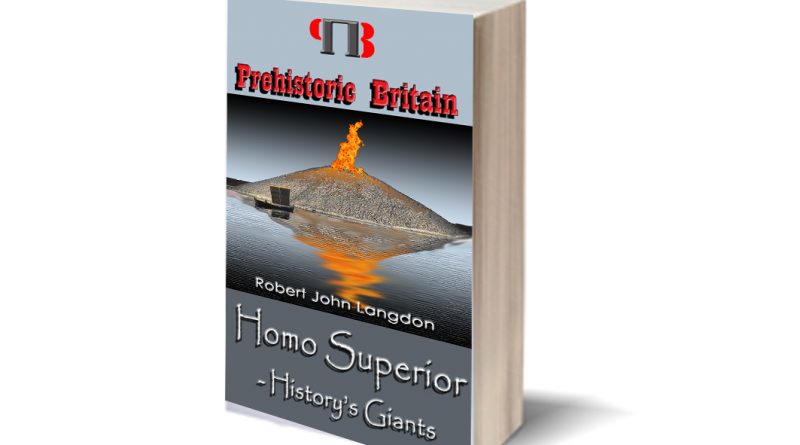
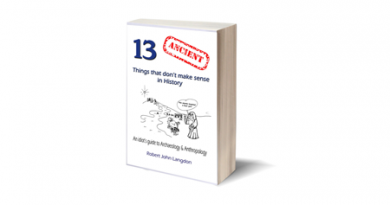
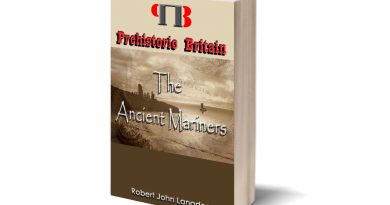
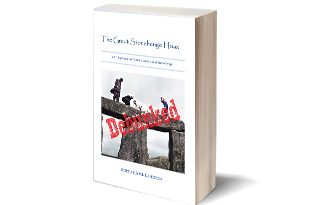
Pingback: Wansdyke LiDAR Flyover - Prehistoric Britain
Pingback: Antonine Wall - Prehistoric Canals (Dykes) - Prehistoric Britain
Pingback: Case Study - River Avon - Prehistoric Britain
Pingback: The Great Antler Pick Hoax - Prehistoric Britain
Pingback: Archaeology: Fact or Fiction? - Prehistoric Britain
Pingback: The Great Farming Hoax - (Einkorn Wheat) - Prehistoric Britain
Pingback: Revolutionising History: Car Dyke Unveiled as Prehistoric & the Launch of FusionBook 360 - Prehistoric Britain
Pingback: Debunking the Media Misinterpretation of the "Black Stonehenge Builders" Reports - Prehistoric Britain
Pingback: Blackhenge: Debunking the Media misinterpretation of the Stonehenge Builders - Prehistoric Britain
Pingback: Archaeology: The Flaws of Peer Review - Prehistoric Britain
Pingback: Prehistoric Canals (Dykes) - Offa's Dyke (Chepstow) - Prehistoric Britain
Pingback: Britain's Giant Prehistoric Waterways - Prehistoric Britain
Pingback: Newgrange - Monument or Disneyland? - Prehistoric Britain
Pingback: Prehistoric Canals (Dykes) - Wansdyke (4) - Prehistoric Britain
Pingback: The Perils of Paradigm Shifts: Why Unconventional Hypotheses Get Branded as Pseudoscience - Prehistoric Britain
Pingback: The Rivers of the Past were Higher – an Idiot’s Guide - Prehistoric Britain
Pingback: From the Rhône to Wansdyke: The Case for a Standardised Canal Boat in Prehistoric Britain - Prehistoric Britain
Pingback: Ivory Tower Collapse: How Academia Abandoned Society – and Took Education, Innovation, and Archaeology Down With It - Prehistoric Britain
Pingback: Dyke Construction - Hydrology 101 - Prehistoric Britain
Pingback: Ten Reasons Why Car Dyke Blows Britain’s Earthwork Myths Out of the Water - Prehistoric Britain
Pingback: Stonehenge Hoax – Summer Solstice - Prehistoric Britain
Pingback: The Stonehenge Code: Unveiling its 10,000-Year-Old Secret - Prehistoric Britain
Pingback: Silbury Avenue - Avebury's First Stone Avenue - Prehistoric Britain
Pingback: Rethinking The Past: Mathematical Proof of Langdon's Post-Glacial Flooding Hypothesis - Prehistoric Britain
Pingback: Archaeology: A Harbour for Fantasists? - Prehistoric Britain
Pingback: 🛑 The “Hunter-Gatherer” Myth: Why It’s Time to Bury This Outdated Term - Prehistoric Britain
Pingback: The Beringian Migration Myth: Why the Peopling of the Americas by Foot is Mathematically and Logistically Impossible - Prehistoric Britain
Pingback: Ten Things You Didn’t Know About Britain’s Prehistoric Flooded Past - Prehistoric Britain
Pingback: Stonehenge Phase 1 — Britain's First Monument - Prehistoric Britain
Pingback: - Prehistoric Britain
Pingback: Cro-Magnons - An Explainer - Prehistoric Britain
Pingback: Archaeology’s Bayesian Mistake: Stop Averaging the Past - Prehistoric Britain
Pingback: The Great Farming Migration Hoax - Prehistoric Britain
Pingback: Why a Simple Fence Beats a Massive Dyke (and What That Means for History) - Prehistoric Britain
Pingback: The Great Offa's Dyke Hoax - Prehistoric Britain
Pingback: The Subtropical Britain Hoax - Prehistoric Britain
Pingback: Atlantis Found: The Mathematical Proof That Plato’s Lost City Was Doggerland - Prehistoric Britain
Pingback: The Problem with Hadrian's Vallum - Prehistoric Britain
Pingback: Prehistoric Canals - Wansdyke - Prehistoric Britain
Pingback: Stonehenge Solved - Pythagorean maths put to use 4,000 years before he was born - Prehistoric Britain
Pingback: Caerfai Promontory Fort - Archaeological Nonsense - Prehistoric Britain
Pingback: Stonehenge: The Worlds First Computer - Prehistoric Britain
Pingback: Rising Evidence, Falling Rivers: The Real Story of Europe’s First Farmers - Prehistoric Britain
Pingback: First Hillforts, Then Mottes — Now Roman Forts? A Century of Misidentification - Prehistoric Britain
Pingback: Cro-Magnon Megalithic Builders: Measurement, Biology, and the DNA - Prehistoric Britain
Pingback: Britain's First Road - Stonehenge Avenue - Prehistoric Britain
Pingback: What Archaeology Missed Beneath Stonehenge - Prehistoric Britain
Pingback: The Great Stone Transportation Hoax - Prehistoric Britain
Pingback: Troy Debunked - Troy did not exist in Asia Minor, but in fact, the North Sea island of Doggerland - Prehistoric Britain
Pingback: Archaeological 'pulp fiction' - has archaeology turned from science? - Prehistoric Britain
Pingback: ATLANTIS: Discovery with Dan Snow Debunked - Prehistoric Britain